JEAN DE CALAIS
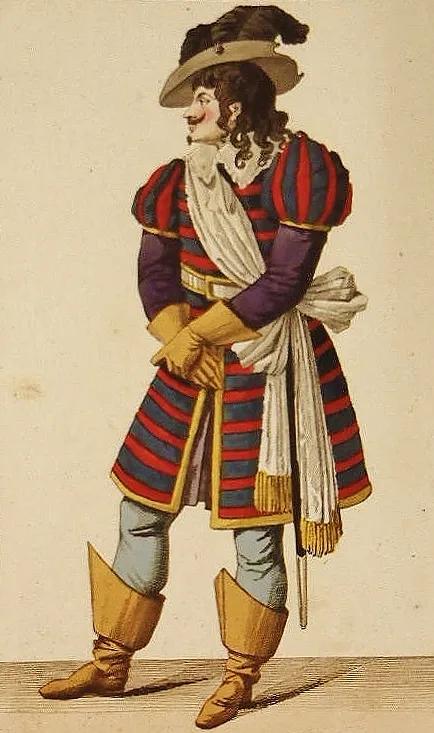
Source
There was, once, a man rich with a hundred thousand pistoles, and giving much alms to the poor. This man had lost his wife and lived with his child, called Jean de Calais.
At twenty years old, Jean de Calais was a strong and bold young man, alm giving like his father, but a drunkard and womanizer. It came to the point that his father said to him one day:
— “Jean de Calais, you borrow from God and the Devil. You are throwing money out the window. I don't want you to ruin me, for pimps and whores. Listen. Here are seven thousand pistoles. Pay what you owe, and try to live a better life."
"Father, you will be obeyed."
But Jean de Calais forgot his promise. Instead of paying what he owed, he went back to pounding the streets, drinking, and running around. It came back to the point that his father said to him one day:
“Jean de Calais, you did not obey me. My seven thousand pistoles are gone. You always borrow from God and the Devil. You always throw money out the window. Your debts will be paid. But I don't want you to ruin me, for pimps and whores. Listen. Here are seven thousand more pistoles. Go travel the world, and try to make your fortune."
"Father, you will be obeyed."
Jean de Calais greeted his father, jumped on his horse, and left by the road to Bordeaux.
Three days later, he walked further than Marmande. He was crossing a village, very close to the Garonne. At the edge of the water lay, naked as a worm, a poor dead man, eaten away by dogs. Then, Jean de Calais turned blue with anger.
“A thousand gods! Am I then in a country of pagans and Jews? Are you not ashamed, scoundrels, to leave this poor dead man like this, naked as a worm, and eaten away by dogs?"
"Passer-by, try to speak better. Otherwise, watch out."
Jean de Calais drew his sword.
“I speak as I please, drunkards. Move forward. Fuck all of you, on foot and horseback. Come on, bandits, move forward a little."
Then the people of the village lowered their voices, and answered honestly:
“Passer-by, don’t get angry. This man only gets what he deserves. He died without paying his debts. In such cases, the custom of this country is for the body to be thrown naked on the water's edge. The dogs gnaw at it, waiting for the Garonne to rise and carry it away. The rest benefits the fish."
"Pigs! So you are not Christians? How much did the poor dead man owe, you bastards?"
"The dead man owed six thousand pistoles."
"Here are seven, executioners' servants. Pay yourself. The rest is for having masses said. Now, scum, run and get the priest, and on the way to the cemetery."
"Passer-by, you will be obeyed."
The poor dead man buried, Jean de Calais returned to his father.
“Hello, Father.
— Hello, Jean de Calais. You are back soon. Have you ever made a fortune? Tell me about it."
Jean de Calais obeyed. Until the end, the father listened without saying a word.
“Jean de Calais, you did well. I forgive you. Try to live a better life."
"Father, you will be obeyed."
But John of Calais forgot his promise. He started pounding the streets again, drinking and running around. It came back to the point that his father said to him one day:
“Jean de Calais, you did not obey me. You always borrow from God and the Devil. You are throwing money out the window. Your debts will be paid. But I don't want you to ruin me, for pimps and whores. Here are seven thousand more pistoles. Go travel the world, try to make your fortune, and don't come back soon."
"Father, you will be obeyed."
Source: Jean de Calais, from the French book Contes populaires de la Gascogne, tome 2, published in 1886
Previous Tale: The Man of All Colors -
Hello, my name is Vincent Celier.

I am writing translations of folk tales that I found in public domain French books, so that people who do not understand French may enjoy them too.

As you may know, Calais is a port city in the North of France. It is the city closer to England. So, it is strange to find a character in a folk tale from Gascony that is named Jean de Calais (John of Calais).
The reason is that this story originated in Calais. You can find on the Internet the Histoire de Jean de Calais[fr], which was published originally in 1776 by Jean Castilhon. So, it was a folk tale from Calais that was told in the XVIIIth century and probably for a long time before.
The story was propagated by storytellers in other provinces of France. For example, I found one version in Britanny. Sometimes the name of the hero was modified, for example, "Jean Carré". And sometimes, as is the case here, the hero kept the original name of Jean de Calais.

Today, I climbed a hill walking on a very steep street: Völgyi dűlő'
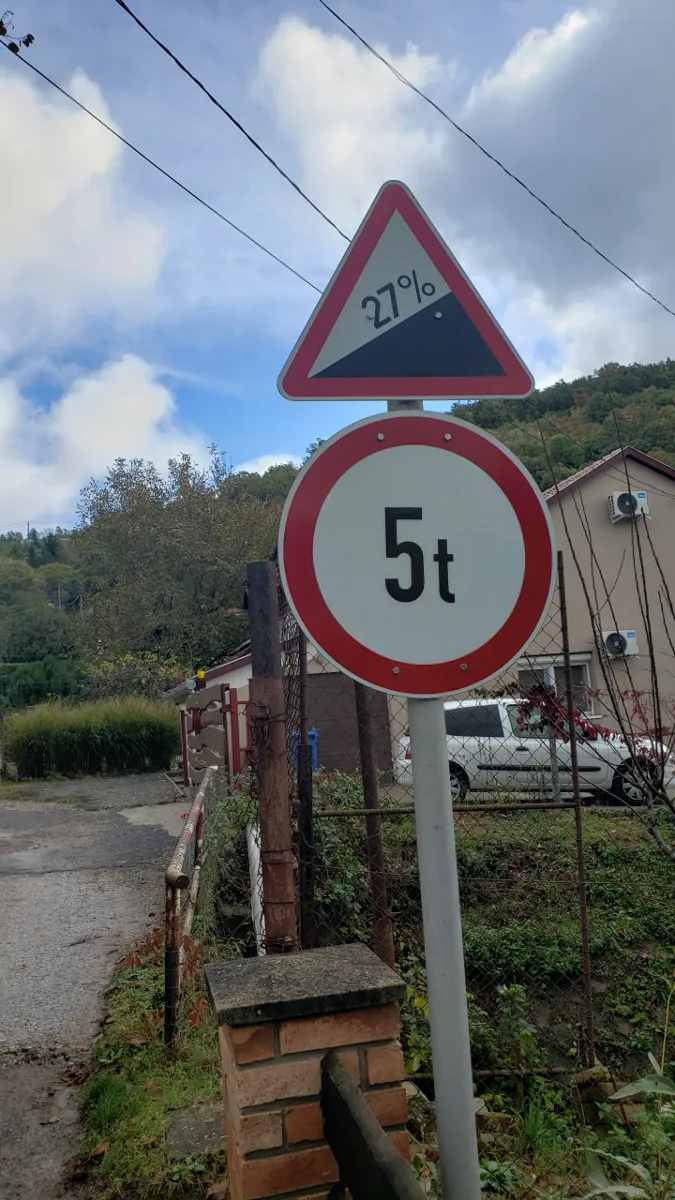
The street is not paved on 70% of its length. It is hard to realize in a picture the steepness of the street, but I can assure you it was very steep.
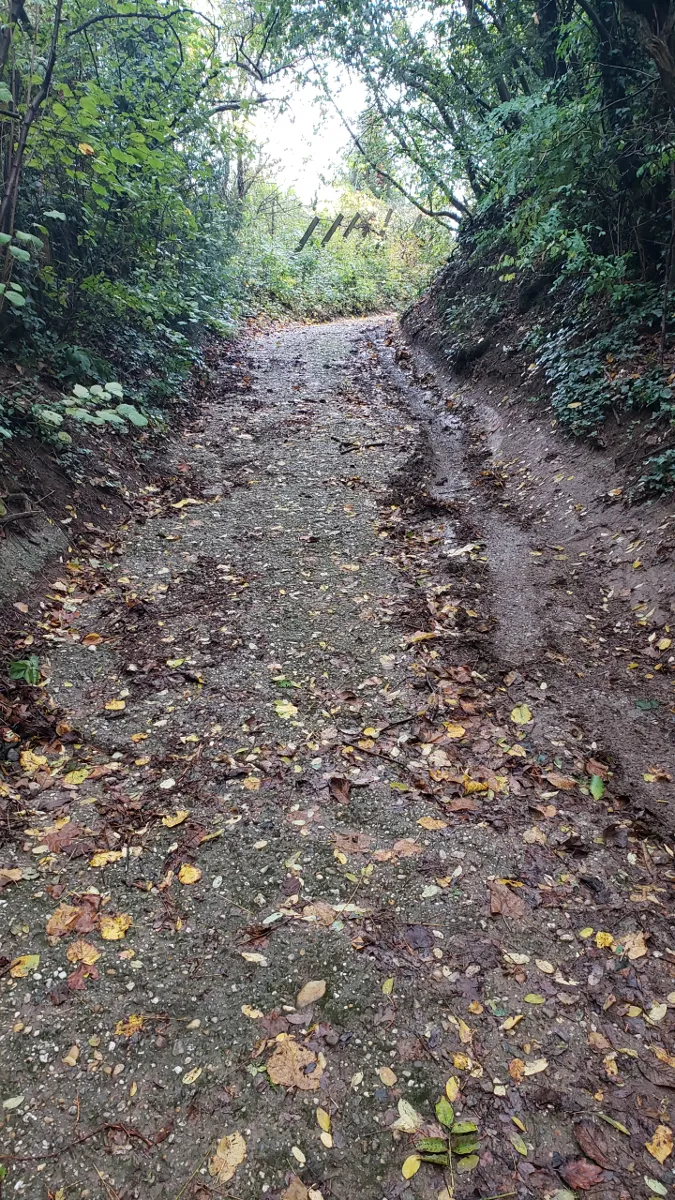
When I arrived at the top of the hill, I was able to see the south of the city of Pécs.
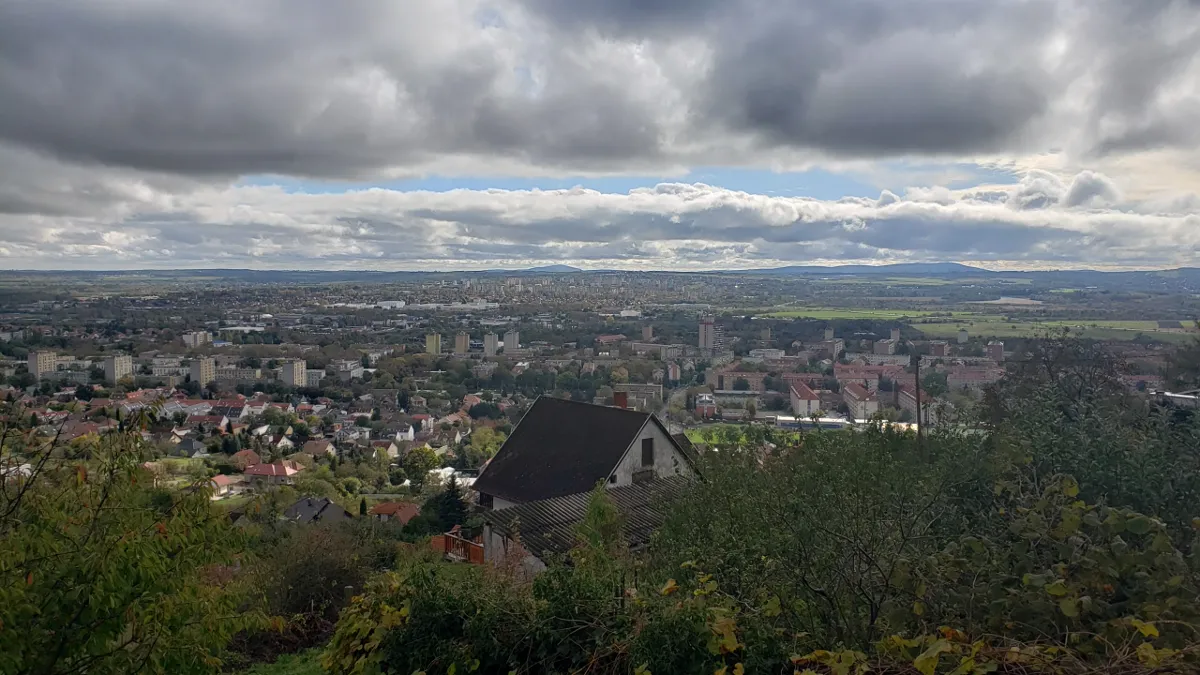
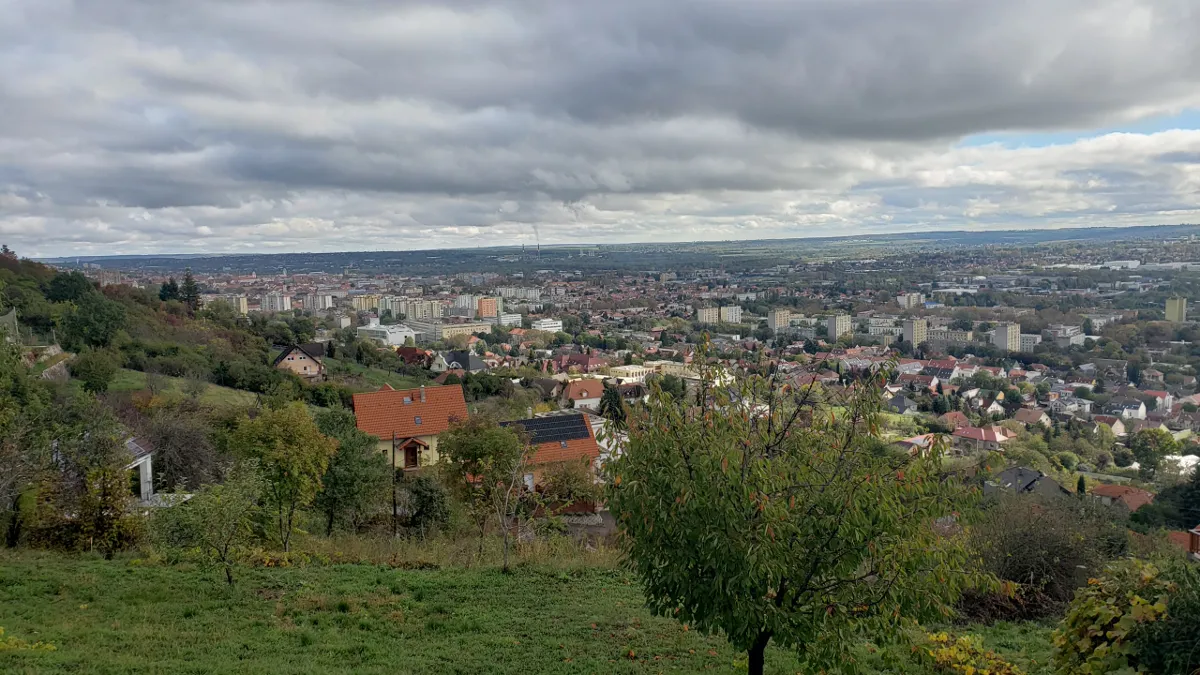
From the top, going down, it advertises an even steeper slope.
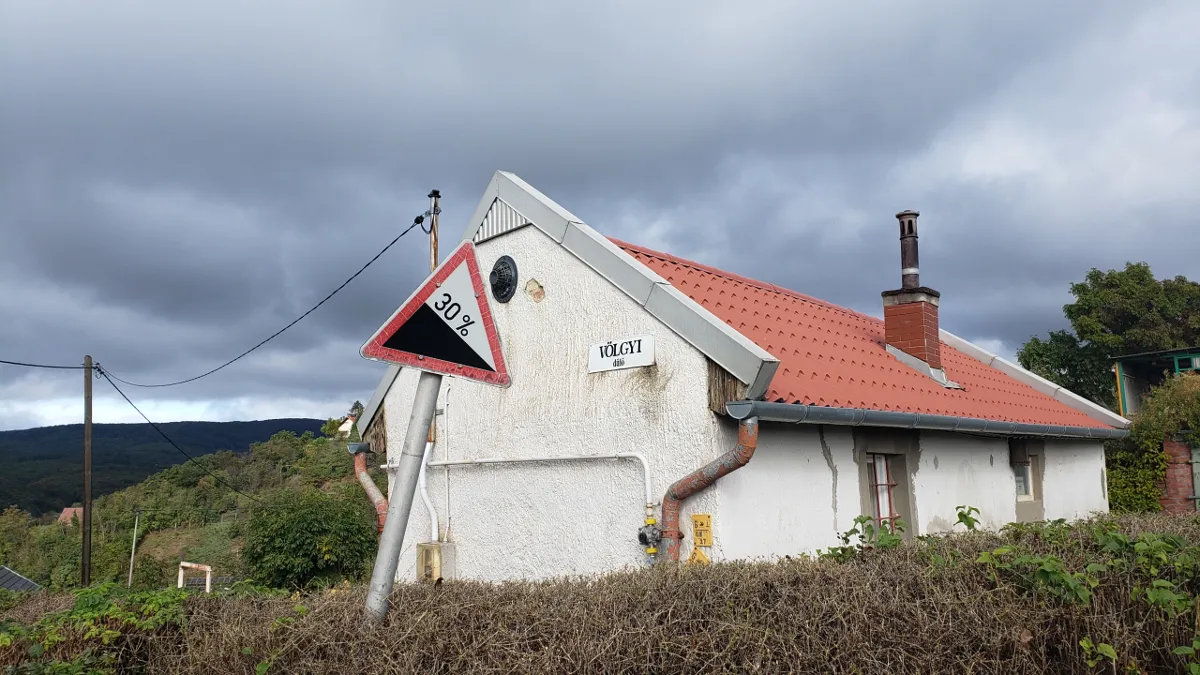
A slope of 30% is less than 17 degrees, but it looks a lot more. I had to be extremely careful when going down; I almost fell twice.
-- Vincent Celier